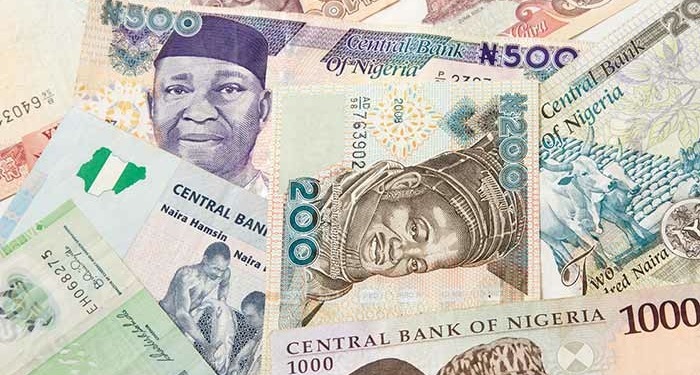- The Naira is labeled one of the worst-performing currencies in 2023, facing a 55% plunge and predicted further depreciation
- Bloomberg attributes Naira’s decline to a freer trading regime, removal of petrol subsidies, and depleting foreign reserves
The naira has been designated one of the world’s poorest-performing currencies in 2023, according to Bloomberg’s latest report. The currency is poised for its most challenging year since the return to democracy in 1999, with analysts forecasting further depreciation in 2024.
Bloomberg highlighted that the Naira experienced a significant 55 percent plunge this year, reaching 1,043 per dollar as of Thursday. This places it as the world’s worst performer among 151 currencies tracked, trailing behind the Lebanese pound and the Argentine peso.
The Naira hit an all-time low on Thursday, depreciating to N1,043.09 per US dollar in the official market just days before the New Year.
The report attributes the depreciation to the Central Bank of Nigeria’s decision to allow the currency to trade more freely in June and President Bola Tinubu’s move to eliminate costly petrol subsidies. Additionally, Nigeria’s foreign reserves have hit a six-year low, with a significant portion tied up in overdue short-term overseas obligations.
Vetiva Capital Management Ltd, quoted by Bloomberg, predicts that the currency may continue to slip unless the Tinubu-led federal government attracts international investors or increases oil output. Vetiva Capital Management emphasized the need for further devaluation, coupled with tighter monetary policy, to address imbalances in the foreign exchange market.
In a note to clients, Vetiva Capital stated, “It’s clear that further devaluation — alongside tighter monetary policy — is needed to reduce imbalances in the FX market. A significant rise in external reserves, material increase in foreign exchange inflows, and reduction in money supply will be positive for the Naira.” The unfolding situation poses challenges that demand careful consideration and strategic interventions to stabilize the Naira’s value in the global financial landscape.








Discussion about this post